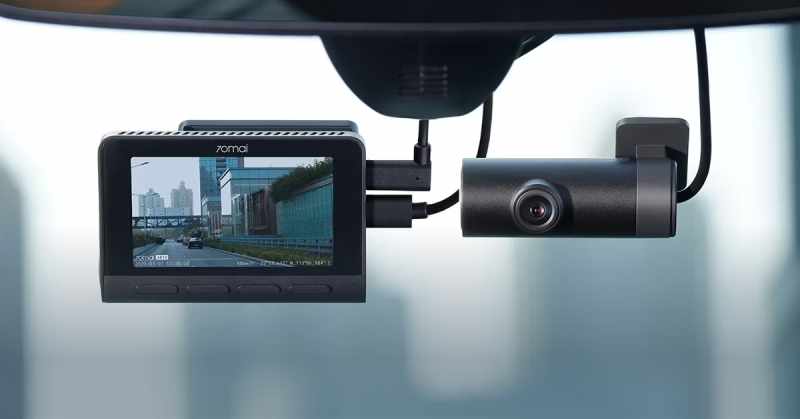Technology
On Chrome OS , Google is getting ready to trial Android 11

One of the trademark highlights of Chrome OS gadgets is their capacity to run Android applications, presently took care of by a variant of Android Pie. Since the Android 11 Developer Preview period has started, Google has openly started chip away at carrying Android 11 to Chrome OS.
A month ago, Google gave us our first gander at the following cycle of Android longer than a month sooner than expected with Android 11 Developer Preview 1. Notwithstanding, even before its discharge, another venture started preparing inside Chrome OS source code with the name “eve-bend r.”
Separating that, they have “eve,” which is the inside codename for the Google Pixelbook, “arc” which means “Android Runtime for Chrome,” lastly, “r,” which is the following letter after a year ago’s “Android Q,” which in the end became “Android 10.” From this by itself, they get a really clear picture that Google is taking a shot at Android 11 for Chrome OS, beginning with the Pixelbook.
Investigating other code changes from a similar designer, they locate a couple of references to “RVC” that is by all accounts Google’s codename for Android 11, much the same as “QT” is Android 10’s codename.
Past that, they likewise find that the Pixelbook won’t be distant from everyone else in getting Android 11, as two more Chrome OS codenames are additionally being given “circular segment r” Android 11 forms. The first, “Kukui,” is the base board for Chrome OS gadgets dependent on the Mediatek MT8183 processor found in any semblance of the Lenovo IdeaPad Duet tablet.
In the mean time, the second, “Hatch,” is the reason for Chromebooks based on the tenth era of Intel Core processors. That implies the profoundly foreseen Samsung Galaxy Chromebook might have the option to exploit Android 11 in due time.
The main other fascinating goody they’ve revealed so far is that the old strategy for running Android inside Chrome OS, which includes a “container” that sudden spikes in demand for the Chrome OS inner Linux part, is finishing with Android Pie.
For Android 11 ahead, Chrome OS will switch over to utilize the more current “ARCVM” strategy that runs Android in a different virtual machine with its own part to all the more likely ensure the center Chrome OS bit. The change will make running Android on Chrome OS predictable with the way that Linux applications can run on Chromebooks today, and ought to likewise make sideloading applications more secure.
Tragically, in light of the fact that testing is increase, they can’t expect that Android 11 will really show up on our Chromebooks. Google made comparative moves a year ago to test Android 10 on Chrome OS, however this work never worked out into the real world. Actually, Chrome OS’s Android 10 help “has been abandoned.”
Alternately however, Chrome OS recently skipped Android Oreo, going straightforwardly from Nougat to Pie. On the off chance that that timetable were to proceed, it could bode well for Chrome OS to skip Android 10 and update legitimately to Android 11.
Whatever the case might be, considering Android 11 is still in Developer Preview and this work on the Chrome OS side has just barely started, we may not see this update for many months, if not into one year from now.
What highlights from Android 10 and Android 11 would people need to exploit on Chrome OS? Tell us in the remarks!
About Author
Disclaimer: The views, suggestions, and opinions expressed here are the sole responsibility of the experts. No Digi Observer journalist was involved in the writing and production of this article.
Technology
5 Standout Features Of The Next Level 70mai Dash Cam 4K A810

In just seven years since its foundation in 2016, 70mai has emerged as an auto intelligence industry leader specializing in dashboard cameras. From the Dash Cam M500 to the industry’s first 360-degree coverage wonder Dash Cam Omni, 70mai has constantly upped its game with futuristic innovations to delight its 5 million and growing users in over 103 countries worldwide.
Continuing its groundbreaking streak, 70mai presents the new Dash Cam 4K UHD A810, a game-changing upgrade of its flagship 4K model A800S. With vastly enhanced image quality and new smart functions, the 70mai Dash Cam 4K A810 brings you the most premium recording experience on the road. You can own this revolutionary dash cam now with a launch discount on all its models on Amazon or directly through the 70mai store from August 10th through September 10, 2023.
- 4K UHD resolution with optimized image quality for extreme clarity and security
Powered by Sony’s best-in-class image sensor, Starvis 2 IMX678, and HDR algorithm, the Ultra HD 4K resolution of 70mai A810 will exceed your expectations. The 1/1.8″ sensor features a 68% increase in chip size and a 90% increase in the pixel’s photosensitive area. Plus low light performance has been doubled. So you get cinematic-quality pictures and a wider dynamic range.
With the A810, you can record bright pictures with less noise, even in extremely dark and contrasting surroundings, like on a road without streetlights or when exiting a tunnel. Easily capture car license plates and evidence of accidents with extreme clarity.
- MaiColor Vivid+ Solution exclusive image technology for realistic footage
Combined with 70mai’s exclusive MaiColor Vivid+ Solution (MVS), A810 optimizes footage quality further to make it clear, natural, and realistic. You’ll be awed by how Auto Exposure technology makes the changing light appear smooth and natural. And the color accurateness and stability of visuals, especially under complex lighting environments.
Moreover, the 60fps high frame rate, which works with 1080p resolution, effectively prevents motion blur. Capture fleeting details like number plates and street signs while driving fast, crucial evidence in case of a mishap.
- HDR dual-channel recording for maximum road coverage
The industry‘s first 4K dash cam compatible with a 1080P HDR rear camera, the A810 is your best combo dash cam for recording the road ahead and capturing evidence in case of rear-end collisions.
Sporting the HDR algorithm, the 70mai RC12 rear camera gives you a clear, color-rich, realistic rear view, and detailed images even at night. Plus, its noise elimination, color saturation, and exposure balance make it stand out among other cameras.
You can also combine the A810 with the 70mai 1080P IR interior camera instead of the rear camera. Use it for monitoring driving behavior or recording activities of passengers like your kids, day or night.
- 70mai Night Owl Vision that lights up the dark
The exclusive 70mai Night Owl Vision is great at capturing in the dark by pulling in more light to ensure well-illuminated recordings, thanks to its large F1.8 aperture. Night Owl Vision improves night footage by delivering clearer images, exposure balance, color saturation, and light glare control.
- Time-lapse recording for continuous parking monitoring
Both front and rear cameras of the 70mai 4K A810 record continuously 24/7 at one frame per second during parking mode. With this dual-channel recording, the A810 ensures 360-degree protection for your car.
Then it compresses every 15 minutes of footage into a one-minute time-lapse video that saves on memory card space and power. You can check this faster playback for any suspicious activity like hits caused by other vehicles and humans around your car, thanks to the AI-powered Smart Parking Guardian Mode.
Many more reasons that make 70mai 4K A810 your best dash cam
A810’s super-sensing ADAS ensures improved driving safety through real-time voice alerts for pedestrians, bikers, lane departure, front collision, and moving traffic. GPS lets you track accident locations and provide evidence for insurance claims. Connecting to the 70mai App via the dash cam’s WiFi, you can access real-time footage on your phone, take photos, and download and share them.
Undoubtedly, the next level 70mai 4K A810 has got it all to elevate day and night vision to the extreme. You can own any model of it now with a launch discount on the 70mai store. Or grab the A810 Dash Cam Set with the introductory discount on Amazon and power every drive with extreme clarity and extreme security.
About Author
Disclaimer: The views, suggestions, and opinions expressed here are the sole responsibility of the experts. No Digi Observer journalist was involved in the writing and production of this article.
Technology
Meta Disbands Protein-folding Team In Shift Towards Commercial AI

Meta has axed a team that used artificial intelligence to create the first database of more than 600mn protein structures, in a signal the company is abandoning purely scientific projects in favour of building moneymaking AI products.
The social media giant had employed a group of about a dozen scientists on a project called ESMFold, which trained a large language model capable of processing vast amounts of biological data to predict protein structures. The effort has been lauded by those involved in the development of new drugs and treatments.
In a previously unreported move, the ESMFold group was disbanded this spring as part of broader lay-offs across the company, three people familiar with the restructuring said.
Though the protein-folding team was small compared with the thousands of AI scientists and engineers still employed at Meta, the move to axe their project showed the company’s desire to abandon blue-sky research in favour of AI projects that can generate revenues, the people familiar with the matter added.
“Meta has tried to align its research strategy to understand more how to create advanced intelligence that can help Meta as a business, rather than just some curiosity projects,” said Yaniv Shmueli, a former research scientist and engineering manager at Meta AI who worked on ESMFold.
Under what chief executive Mark Zuckerberg has described as its “year of efficiency”, Meta has undergone significant restructuring in recent months. This includes a flattening of the management structure and job cuts affecting about 20,000 staff, following calls from investors to focus on profitability and growth.
Meta was one of the earliest big tech groups to invest in artificial intelligence. It set up its Fundamental AI Research (Fair) lab in 2013 to work on research in the area, hiring leading academics in the space.
Over the years, it has published papers and been recognised in the scientific community for advances in AI. However, it has begun to lag rivals such as OpenAI, Microsoft and Google, which all have consumer-facing chatbots that wield generative AI.
Meta’s new focus is to harness its longstanding research and development in the space to create products that jump on the hype around generative AI, a technology that can produce convincing paragraphs of humanlike text, as well as images and video.
A generative AI team headed by Meta’s product chief Chris Cox was set up in February, which now has more than several hundred staffers, including people who transferred from Fair, according to two people with knowledge of the matter.
The Financial Times reported last week that Meta was planning to launch a range of chatbots in the style of different personas as soon as September, in an effort to catch up to competitors.
“Meta remains committed to Fair conducting exploratory research based on open science,” said Joelle Pineau, vice-president of AI research at Meta. “Projects graduating from Fair and moving into other areas of our business has always been a component of how the team operates. This enables us to apply learning and techniques from Fair’s AI research in products.”
Some company insiders said, however, that the academic culture within the Fair lab was partly to blame for Meta’s late arrival to the generative AI boom, because there was insufficient collaboration both between researchers and with the rest of the company.
Tensions also extended regionally, as Meta AI staff in Europe and the US battled to work on top projects and train models, these people added. The company was now trying to reconfigure its Fair research to fit with the aims of the “GenAI” team, one person said.
Meta researchers in November last year released the first database of more than 600mn metagenomic protein structures, known as the ESM Metagenomic Atlas. Metagenomics is the study of little-known proteins in samples from environments across the earth, including microbes in the soil, ocean and human bodies.
The work was considered a rival to DeepMind’s protein-folding prediction technology, AlphaFold, considered a scientific breakthrough in 2020 and comparable to lab methods in its accuracy.
Meta’s ESMFold project trained a large language model to learn evolutionary patterns and generate accurate structure predictions directly from the DNA sequence of a protein. The AI was up to 60 times faster, although less accurate, than AlphaFold.
About Author
Disclaimer: The views, suggestions, and opinions expressed here are the sole responsibility of the experts. No Digi Observer journalist was involved in the writing and production of this article.
Technology
Windows 10 will soon have Chrome low memory hog

Google has gone through years attempting to diminish Chrome’s famous hunger for memory, and it’ll before long offer a significant improvement for Windows 10 clients.
WindowsLatest has learned (by means of MSPowerUser) that a Google engineer as of late uncovered that a future Chrome release will utilize a method from Microsoft Edge to bring down RAM utilization and hypothetically help execution.
Chrome will change to “Segment Heap” memory the executives that, in Microsoft’s understanding, cut memory use by 27 percent.
The upgrades in Chrome could shift uncontrollably relying upon the system, however tests showed that it could once in a while spare “hundreds of MB” in the program and framework forms. “Many-core” systems are well on the way to see the biggest advantage, the specialist said.
You should see the component not long after Google can construct Chrome utilizing the correct Windows 10 developer unit. This won’t really lead to monstrous upgrades in execution, however it would be ideal on the off chance that you either have restricted memory in your system or basically prefer to keep numerous browser tabs open.
About Author
Disclaimer: The views, suggestions, and opinions expressed here are the sole responsibility of the experts. No Digi Observer journalist was involved in the writing and production of this article.
-
Press Release1 week ago
Presearch Strengthens Sales Division, Appoints Dan Buckingham and Chris Huse as Global Vice Presidents
-
Press Release1 week ago
Presearch Strengthens Sales Division, Appoints Dan Buckingham and Chris Huse as Global Vice Presidents
-
Press Release1 week ago
Rolf Meieru – Chief Investment Officer (CIO)
-
Press Release5 days ago
Trading Reimagined: KlasFX Upgrades User Experience with Investor-First Approach
-
Press Release4 days ago
Macmillan Lawyers and Advisors Specialises in Drone Law Services in Brisbane
-
Press Release5 days ago
Sun Banana Leading AI-Powered Meme Innovation on TRON
-
Press Release4 days ago
Dubai-Based Broker Kamil Magomedov Completes Record Sale of Three Entire Buildings in Under Seven Hours Amid Escalating Demand at Expo City
-
Press Release5 days ago
Lilysuck: Where Genuine Pleasure Encounters Uncompromising Quality






